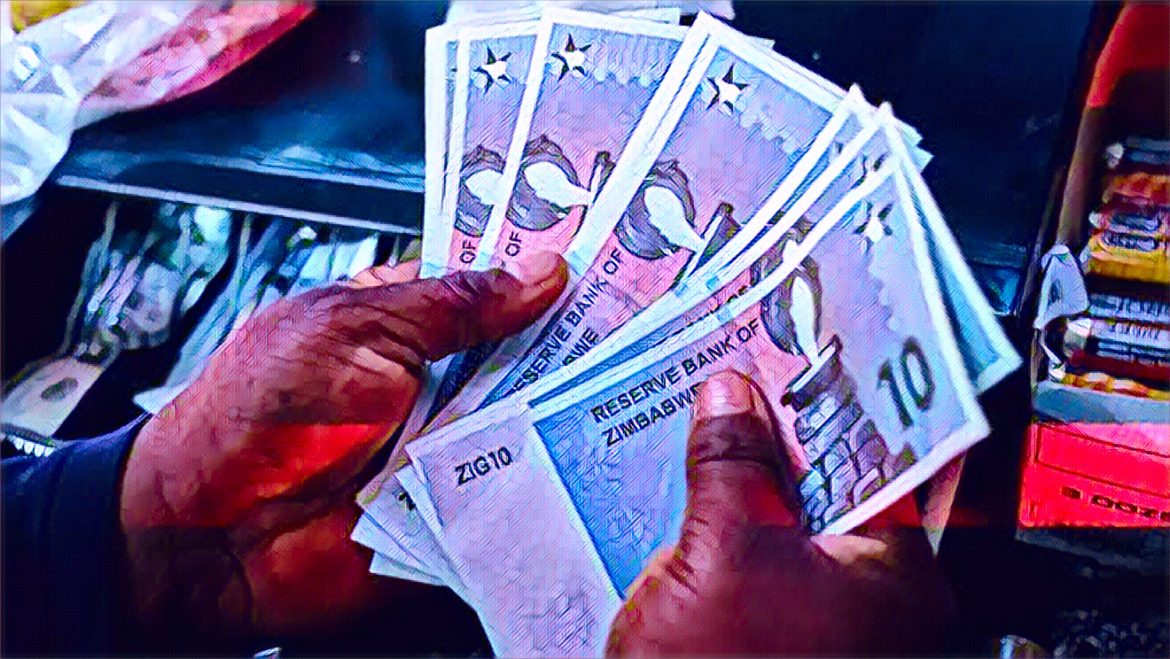KEY POINTS
- Shops in Zimbabwe limit milk purchases to curb panic buying.
- Authorities accuse money changers of causing currency volatility.
- Informal vendors refuse to accept ZiG, opting for U.S. dollars.
Some shops across Zimbabwe have imposed “one item per person” rules for products such as milk to curb panic buying as public confidence wanes in the country’s latest currency.
Shops limit purchases amid panic over currency crisis
Last week, formal retailers warned the government they could face closure if forced to continue selling goods at the artificially high official rate for Zimbabwe Gold (ZiG) currency. Now, retailers like Pick n Pay and OK Supermarket have said they may need to shut down following the abrupt official devaluation of ZiG.
The currency, supposedly backed by physical gold—which recently hit an all-time high—has only added confusion for consumers and the broader market.
Last week, the official value of ZiG was reduced by 43%. According to Zimpricecheck, a retail sector watchdog, “this abrupt change contradicts recent government assurances about the ZiG’s stability and purported gold backing.
Authorities blame money changers as inflation spikes
The Reserve Bank of Zimbabwe’s Financial Intelligence Unit blames the currency’s volatility on illegal money changers. More than 300 people have been brought before the courts so far, and their accounts have been frozen.
Despite numerous arrests, foreign currency traders remain on the streets, with people still seeking them for transactions. “The police sent to arrest us also need our assistance. Their salaries lost value last week, and that makes them more susceptible to corruption for survival,” said a forex trader, speaking on condition of anonymity.
“If anyone wants to know the real economic situation, they should come to the streets, not listen to government spokespersons or read the monetary policy,” said Tererai Chamu, a tuck shop owner.
He pointed out that in 2016, Mangudya introduced the Zimbabwe bond note, claiming it had equal value to the U.S. dollar. “The bond note drove away good money from the market. Imagine buying goods in U.S. dollars and getting a change in bond notes. Soon, we started rejecting the bond notes,” Chamu said.
According to a report by New Zimbabwe, Mushayavanhu later admitted it was false that the bond note had the backing of an Afreximbank loan to guarantee parity with the U.S. dollar. “So why should we believe the gold-backing claim now?” interjected Sandra Mawire, another trader, while requesting U.S. dollar change from a counterpart.
Street vendors reject new currency, prefer hard cash
While formal shops are required to accept ZiG, many tuck shops and informal vendors refuse to do so. This has given rise to intermediaries, who bridge the gap between the formal and informal sectors, with informal traders acting as outlets for larger retailers.
Some shops have also begun turning off point-of-sale machines to avoid accepting ZiG.
The crisis has taken a toll on ordinary Zimbabweans, leaving many poorer—at least on paper.
The Amalgamated Rural Teachers Union of Zimbabwe (ARTUZ) said they are waiting for President Emmerson Mnangagwa’s upcoming State of the Nation address. They hope he will address the impact of currency devaluation on civil servants’ salaries. They want their salaries paid in hard currency.


